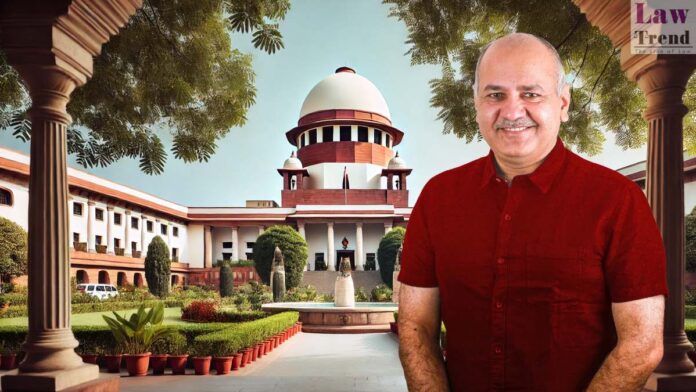The Supreme Court of India has granted bail to Manish Sisodia, former Deputy Chief Minister of Delhi, in connection with the alleged irregularities in the Delhi Excise Policy for the year 2021-22. The bench, comprising Justice B.R. Gavai and Justice K.V. Viswanathan, underscored the fundamental right to a speedy trial, emphasizing that prolonged pre-trial detention
To Read More Please Subscribe to VIP Membership for Unlimited Access to All the Articles, Download Available Copies of Judgments/Order, Acess to Central/State Bare Acts, Advertisement Free Content, Access to More than 4000 Legal Drafts( Readymade Editable Formats of Suits, Petitions, Writs, Legal Notices, Divorce Petitions, 138 Notices, Bail Applications etc.) in Hindi and English.




